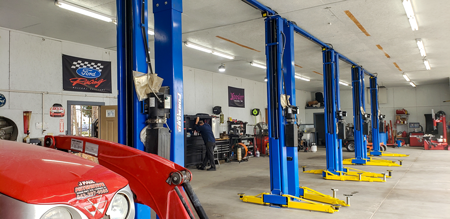All Categories
Featured

[/image]
Your car's brakes are just one of one of the most essential components in guaranteeing your safety and security and the safety and security of others on the roadway. Routine brake examinations are vital to maintaining optimal braking performance and preventing costly repair work. Whether you're an experienced car owner or a brand-new chauffeur, comprehending brake inspection guidelines can help you stay aggressive concerning upkeep and ensure your lorry is always roadworthy.
- Why Brake Inspections Matter. Brakes are subject to constant deterioration. The even more you drive, the much more rubbing your brake pads withstand, at some point causing minimized stopping efficiency. Without proper examination, it's tough to gauge when your brakes could be in requirement of repair service. Routine brake checks help identify problems at an early stage, avoiding prospective failings that might place you in jeopardy.
A well-maintained brake system makes certain fast, receptive quiting power, especially in emergencies. It also helps prolong the life of your lorry, as ignoring brake upkeep can bring about extra severe, expensive problems later on.
- Indicators You Need a Brake Assessment. While it's essential to have your brakes examined occasionally, specific indicators might suggest that they need focus. Maintain an eye (and ear) out for these warning signals:
Squeaking or Grinding Sounds: Uncommon sounds, specifically a shrill screech or grinding sound, commonly suggest that your brake pads are put on down. Resonance or Pulsation: If you feel resonances or a pulsing feeling when pushing the brake pedal, it might be an indication of warped rotors or uneven brake pad wear. Decreased Brake Responsiveness: If your brakes feel less responsive or you need to push the pedal harder to slow down, it might suggest air in the brake lines or low brake fluid. Pulling to One Side: If your vehicle draws to one side when stopping, it could suggest irregular brake pad wear or a brake liquid leakage. Control Panel Caution Lights: Some vehicles have brake-related warning lights that suggest issues like reduced brake fluid or worn brake elements. If you discover any one of these symptoms, it's important to have an expert mechanic perform a brake assessment asap.

- What Occurs Throughout a Brake Inspection? Throughout a brake evaluation, a mechanic will certainly examine numerous crucial elements of the stopping system to make certain everything is in functioning order. Here's what you can anticipate throughout the process:
Brake Pads and Shoes: The auto mechanic will certainly inspect the density of the brake pads or shoes. If they're also slim, they'll require to be replaced. Brake Rotors: Blades are the discs that the brake pads press against to reduce your vehicle down. They'll be examined for any indicators of wear, racking up, or bending. Brake Fluid: Low or infected brake liquid can hinder stopping efficiency. The service technician will inspect the fluid degree and high quality and top it up or flush it if required. Brake Lines and Tubes: Brake lines lug fluid from the master cylinder to the brakes. The mechanic will check for any leaks, splits, or damage to make sure proper liquid flow. Brake Calipers and Wheel Cyndrical Tubes: Calipers and wheel cylinders push the brake pads versus the rotors or drums. The service technician will look for wear, leakages, and appropriate procedure. 4. Just how Often Should You Have Your Brakes Examined? The regularity of brake examinations depends upon aspects like your driving routines, the sort of lorry you drive, and the setting in which you drive. As a general policy, it's a good concept to have your brakes inspected every 12,000 miles or annually. If you experience any of the warning indications stated previously, it's important to get your brakes examined right away.
For those that frequently drive in rush hour, hilly surface, or extreme climate condition, more constant examinations may be necessary.
- Significance of Timely Brake Repairs. When you find an issue with your brakes, it's vital to resolve it right now. Delaying brake repair services can lead to even more significant damages to your stopping system, leading to higher repair work costs. In severe instances, overlooking brake problems can cause complete brake failing, which is a major safety and security risk.
By staying on top of brake upkeep and resolving issues promptly, you guarantee that your brakes continue to execute as planned, maintaining you and your guests secure on the roadway.
Conclusion: Keep Your Brakes in Leading Forming. Brake examinations are a basic yet essential part of vehicle maintenance. By comprehending the importance of routine evaluations, recognizing the indicators of brake concerns, and remaining aggressive with fixings, you can guarantee your automobile's stopping system remains in optimal problem. Regular brake checks supply satisfaction, recognizing that your vehicle prepares to respond when you need it most. Focus on brake upkeep-- your safety depends on it.
Latest Posts
Discover Limited-Time Auto Repair Specials in Chicago at Montclare Auto Repair
Secure Your Home with Top Quality Residential Roof Covering
Enhance Your Home with Expenses Door Solution